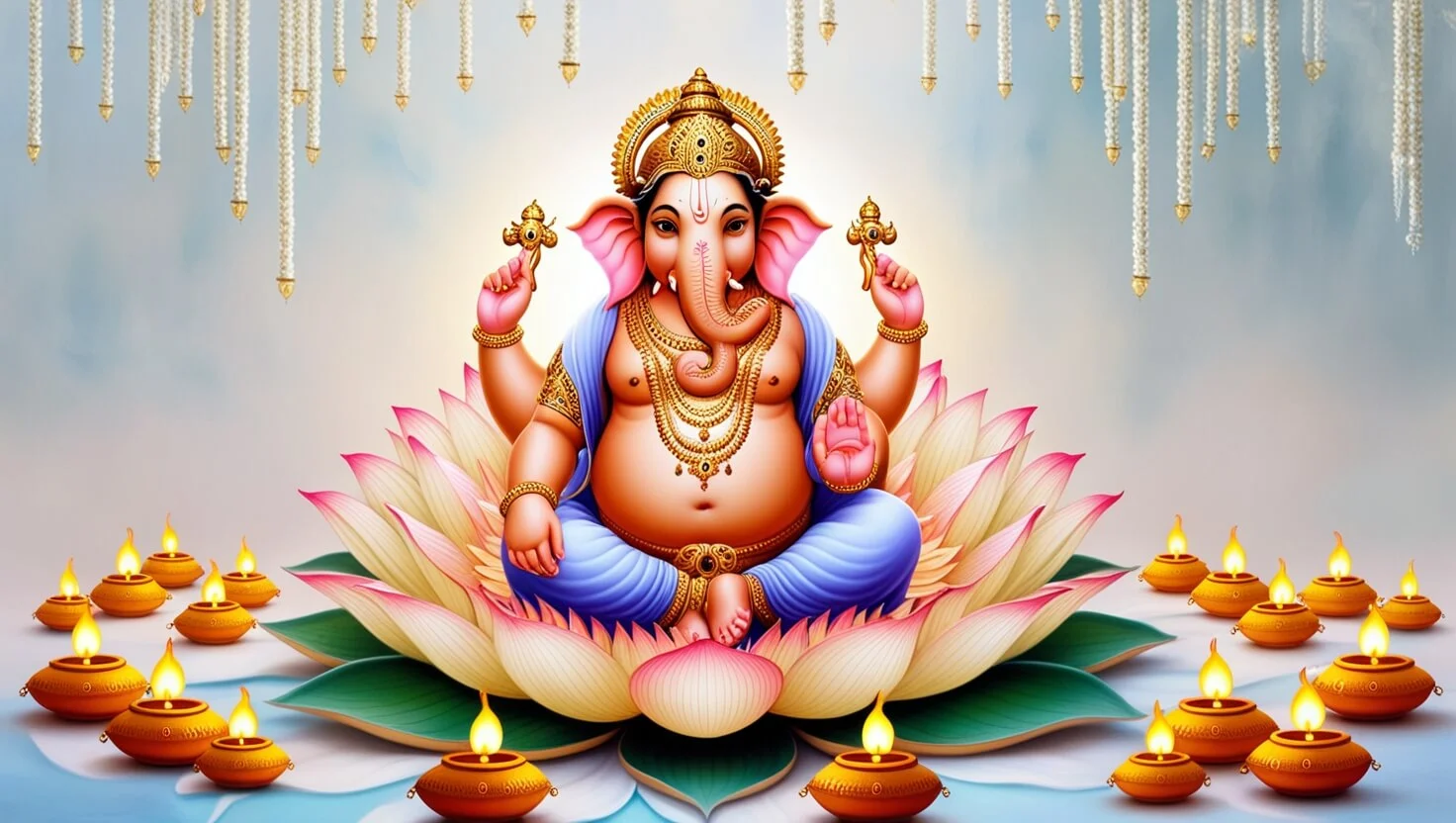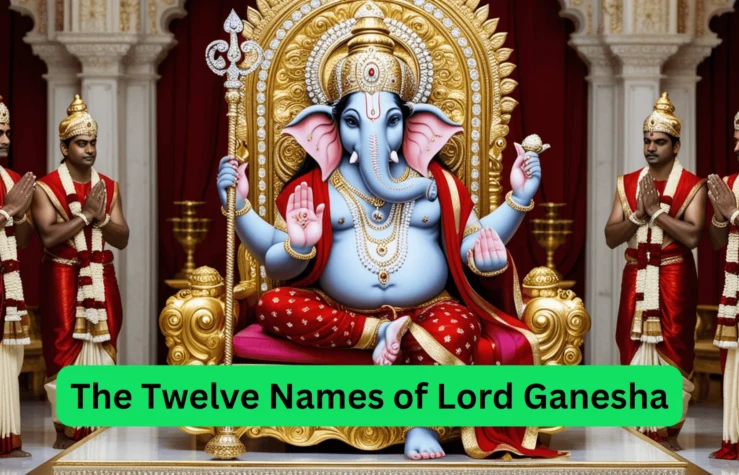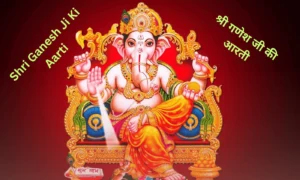Lord Ganesha, the elephant-headed deity revered across India and beyond, holds a special place in Hindu mythology. Known as the remover of obstacles, the patron of arts and sciences, and the deity of intellect and wisdom, Lord Ganesha is invoked at the beginning of any new venture or journey. Among the many names that honor his attributes, twelve names of Lord Ganesha are particularly sacred and carry deep symbolic meanings. These twelve names are chanted during rituals and prayers, believed to bring blessings and protection to devotees.
- Sumukha (सुमुख) – The Auspicious One : The name Sumukha means “one with a beautiful face.” It signifies Ganesha’s pleasant and auspicious nature. His benevolent appearance reassures devotees, symbolizing that good fortune and positivity accompany those who worship him.
- Ekadanta (एकदन्त) – The Single-Tusked One: Ekadanta translates to “the one with a single tusk,” which symbolizes sacrifice. Lord Ganesha is often depicted with one broken tusk, representing the idea that one should be ready to let go of something precious for the greater good. This name also symbolizes the power of overcoming dualities.
- Kapila (कपिल) – The Tawny-Colored: Kapila, meaning “tawny” or “reddish-brown,” is a name that highlights Ganesha’s earthly and grounding qualities. This name reflects the balance between the material and spiritual worlds, emphasizing his role in guiding devotees through life’s challenges.
- Gajakarnaka (गजकर्णक) – The Elephant-Eared One: Gajakarnaka refers to Ganesha’s large elephant ears, which are symbolic of his immense listening powers. This name reminds devotees that Lord Ganesha listens to all prayers, and his wisdom is vast enough to hear and respond to the needs of every soul.
- Lambodara (लम्बोदर) – The One with a Large Belly: Lambodara, meaning “the one with a large belly,” symbolizes contentment and the ability to digest both the good and bad in life. Ganesha’s large belly represents the universe’s capacity to encompass everything, reminding devotees of the importance of acceptance and tolerance.
- Vikata (विकट) – The Fierce One: Vikata means “the fierce one.” This name emphasizes Ganesha’s role as a protector against evil and obstacles. Though he is often seen as gentle and kind, this name reminds us of his power to destroy ignorance and negativity.

- Vighnanasha (विघ्ननाश) – The Destroyer of Obstacles: As Vighnanasha, Ganesha is recognized as the supreme remover of obstacles. This name is particularly invoked when starting new endeavors, as it assures the removal of any hindrances that may stand in the way of success.
- Dhumravarna (धूम्रवर्ण) – The Smoke-Colored One: Dhumravarna, or “the smoke-colored one,” symbolizes Lord Ganesha’s association with the element of air. This name reflects the transient nature of life and the importance of detachment, as smoke is something that rises and fades away, just like material desires and attachments.
- Bhalachandra (भालचन्द्र) – The Moon-Crested One: Bhalachandra refers to the crescent moon adorning Ganesha’s forehead. This name represents the mind’s waxing and waning nature, much like the phases of the moon. It also symbolizes peace and calmness, qualities associated with the moon, and the idea of mental tranquility.
- Vinayaka (विनायक) – The Supreme Leader: Vinayaka, meaning “the supreme leader,” highlights Ganesha’s role as the leader of the Ganas (attendants of Shiva) and his supreme authority in guiding his devotees. This name emphasizes his ability to lead one towards the path of righteousness and wisdom.
- Ganapati (गणपति) – The Lord of the Ganas: Ganapati is one of the most commonly used names of Ganesha, meaning “Lord of the multitudes.” This name underlines his position as the leader of all beings, both divine and earthly. Ganapati signifies the role of Ganesha in unifying different energies and guiding them towards a common goal.
- Gajanana (गजानन) – The Elephant-Faced One: Gajanana, meaning “elephant-faced,” is a name that directly refers to Ganesha’s unique appearance. The elephant symbolizes wisdom, strength, and patience. This name reflects Ganesha’s ability to clear paths for his devotees with the strength and wisdom of an elephant.
Conclusion: The Divine Resonance of Ganesha’s Names
Each of these twelve names of Lord Ganesha carries a deep, symbolic resonance that guides and inspires devotees on their spiritual journey. By invoking these names, one can connect with the various aspects of Ganesha’s divine persona, receiving his blessings for wisdom, prosperity, and the removal of obstacles.
Whether chanted in prayer or meditation, these names serve as a reminder of the profound and multifaceted nature of Lord Ganesha, whose presence brings peace, success, and joy to all who seek his grace.







